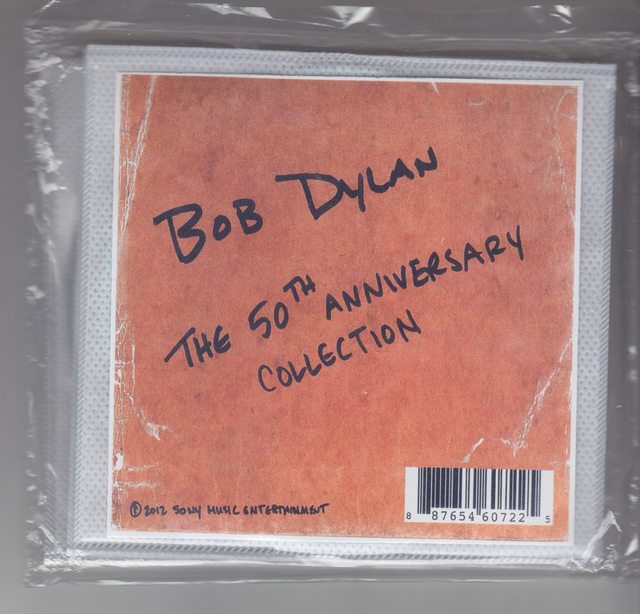Why Bob Dylan's new album came out with a circulation of 100 copies

The label of the famous American rock musician Bob Dylan has recently acted very strange: they released a compilation album in a very limited edition of 100 copies.
The album, entitled “Collection of the 50th Anniversary”, consists of 4 CDs, and it is released only in Europe. The album contains works by Dylan's first years of work: unreleased home recordings, live performances by the Greenwich Village Folk Club and cut-out content from the recordings of his second studio album, The Freewheelin 'Bob Dylan.
The album is minimalistic - there are four CDs, a paper envelope and a carelessly composed list of tracks. The compilation was released in a very limited edition of 100 copies, which is enough to use the new European copyright law for its own purposes. There are several reasons for talking about such motives for the release of the album.
Representatives of the record label Dylan declined to comment on such a strange release. Much more interesting is the commentary on the name of the new album - “The Copyright Extension Collection, Volume 1”. As you can see, even licensors can be honest, and law professor at Duke University James Boyle is convinced that this is the exploitation of laws.
The fact is that not so long ago the European Union extended the term of copyright protection from 50 to 70 years, after these periods the work falls into the public domain. But there is a small detail: to get an additional 20 years of protection, you need to publish protected works at least once in these initial 50 years.
This material was recorded in 1962 and 1963, and the label was forced to publish it with at least some minimal circulation. Thus, copies of master disks that never left the vaults first saw the light of day.
The new law was nicknamed Cliff’s Law by the name of British musician of the 60s Cliff Richard, who lobbied for the change of law, arguing that a still living elderly artist should not lose his royalty after 50 years from the date of publication.
Critics, however, felt that the new law would only be useful to record companies and megastars (Beatles and Rolling Stones) of the past, who risked losing exclusive rights to their records. Most of the musicians, this law will not bring anything.
There are little tricks in the law against ordinary musicians. For example, you can break the contract with the label after 50 years and get full rights to their works, which is designed to help the authors. But for the end of the agreements, it is necessary that the record company did not release a single re-release of controversial works a year before, which threatens a wave of such one-piece albums.
You can talk for a long time about the morality of such bills and their benefits to authors and consumers. Meanwhile go on ebayalbum auctions , and prices for ardent fans are in the region of thousands of dollars.
Based on materials from the National Public Radio and the lot on Ebay .
